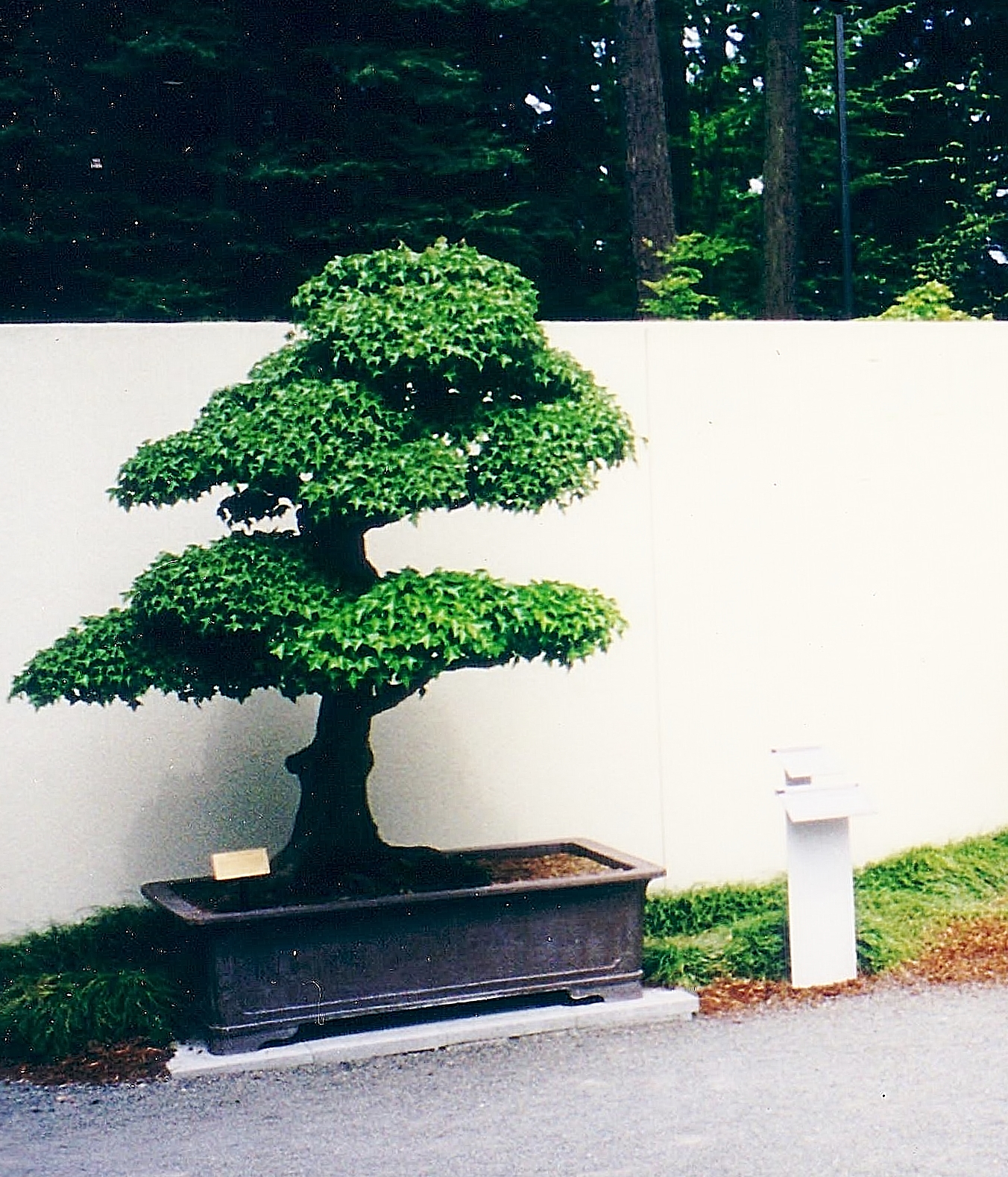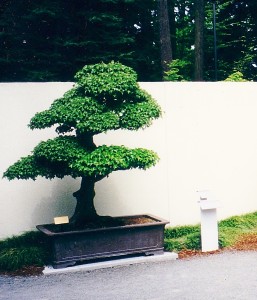SANDRA SHAW HOMER was a guest speaker at my first Costa Rica writers’ retreat (2012) and a co-organizer for my second (2015).
I can’t imagine why my father picked up a copy of La Nación, because he couldn’t read a word of Spanish. But serendipitously he happened upon a two-page spread about a bonsai artist named Cruz in San José. He didn’t need to know Spanish to understand the pictures, and he eagerly shared it with me when I visited my parents’ vacation home near mine in Costa Rica.
My father had burdened me with his few bonsai, imported at great effort from the United States, leaving me with the responsibility for their care during his regular three-month absences. I wasn’t sure I liked this chore, but in caring for the bonsai, I slowly found an affinity for their living selves.
On my next trip into San Jose, I visited Señor Cruz and was enchanted by his calm, Spartan bonsai centre — the simple arrangements, the collection of beautiful stones, his artful bonsai, and his eagerness to share his expertise with a novice. Over many months, I visited him every time I was in the capital, because I was learning so much — not only about the care of these miniature trees in pots but also about the culture that spawned them.
He told me, for instance, that Zen masters viewed a tree as a ladder from which man could ascend to God, and God could descend to man. And it’s not just the physical age that gives a bonsai its value but the story behind it. Traditionally bonsais are passed from generation to generation, and they carry all the weight of their human history and emotional content. To appreciate this is part of the aesthetic of bonsai.
It was around this time that I had the opportunity to visit the Pacific Rim exhibit on the campus of Weyerhaeuser corporate headquarters in Washington State. There’s an extraordinary specimen there that was given to Panama by the Japanese government on the opening of the canal in 1915. The First World War sent the world into convulsions, during which that bonsai disappeared. According to legend, it ended up in the hands of a Japanese-American man, who was interred in the United States during the Second World War.
For four years that tree was completely abandoned and eventually outgrew its pot, shattering the ceramic that had held it for so long. When the man was freed, he came home to find an almost-full-grown tree, and he decided to re-pot it as it was, pruning and shaping it and allowing it to continue life as a giant.
On seeing this incredible tree-in-a-pot, I was terribly moved by its story, and I realized that the poor specimens I had at home, passed on by my very difficult father, also had a history and an emotional content. I decided to write about it, and when I sent the short memoir to Señor Cruz, he wrote back to tell me how much he appreciated it.
Later I had to cut what I had written to 2,500 words for submission to a contest — which I did not win — but I had faith enough in the story to send it to the annual anthology Oasis Journal, and it was accepted for the 2014 edition. “Bonsai Lessons,” which will continue to live as part of my forthcoming memoir, Evelio’s Garden, seems to be creating a history of its own.
SANDRA SHAW HOMER has lived in Costa Rica for 25 years, where she has taught languages and worked as a translator and environmental activist. For several years she wrote a regular column, “Local Color,” for the English-language weekly The Tico Times. She became a Costa Rican citizen in 2002. Her writing has appeared in Oasis Journal 2014, Oasis Journal 2015 and on a few websites, notably Memories into Story (www.allysonlatta.com) and Off the Beaten Track (www.off-the-beaten-track.net). Her travel memoir, Letters from the Pacific, is available in paperback and as an e-book. She recently published The Magnificent Dr. Wao, a brief inspirational memoir available as a Kindle Book. An excerpt of a forthcoming memoir about her life in Costa Rica, Evelio’s Garden, appears on the site Miss Move Abroad (www.missmoveabroad.com). For more information, visit www.amazon.com/author/sandra.shaw.homer

